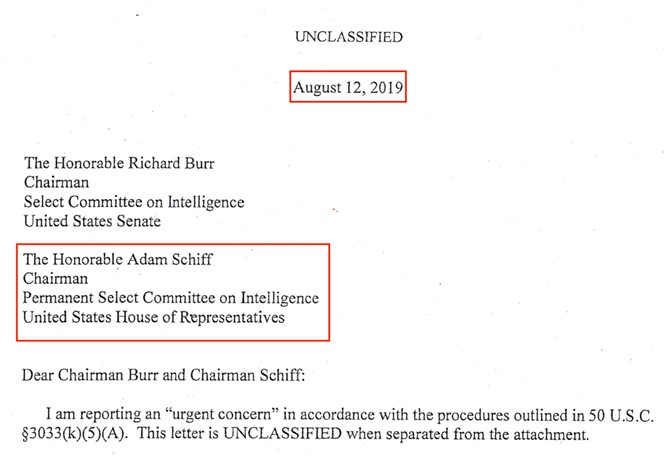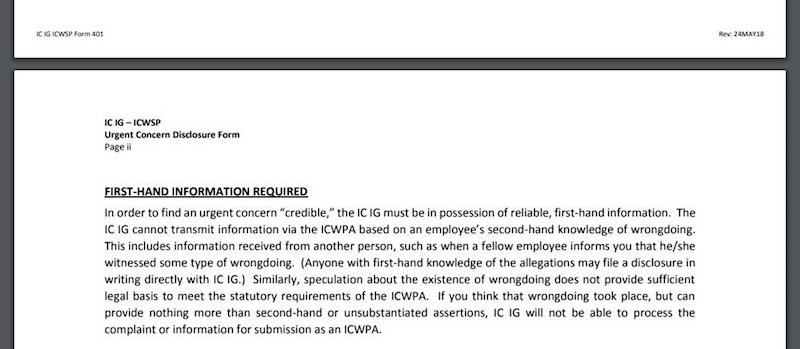
Pablo Picasso Self portrait 1940
Two countries, the US and UK, both seem to barrel down towards great troubles, hence the title Twisted Pair. When I set it up yesterday, I was going to write an essay combining the two, but it now looks like there’s going to have to be two separate essays. Still, I’m wondering how connected both are, and how they’re connected.
And I don’t mean in the popular Boris equals Trump sense, I find the role of for instance the respective intelligence communities and media far more interesting than such cheap ‘solutions’. That’s for the MSM to sell to you, not me.
Let’s start with the US. Over the past few days, a series of snippets have appeared that each make me think: can this be true? The first such snippet is that House Intelligence Committee head Adam Schiff supposedly sat on the ‘whistleblower’ complaint for over a month.
By the way, the term whistleblower is a terrible misnomer, but everyone’s using it, can’t undo that anymore. Still, you can’t be a CIA agent, be planted somewhere, leak on what goes on there and then be labeled a whistleblower. That works only if you share CIA secrets.
Niceties aside, it appears that Schiff sat on the complaint since August 12. First question is: why? But there are other questions as well. Two weeks ago, Schiff complained that acting DNI chief Joseph Maguire refused to share the contents of the complaint with Congress. But Maguire did that only after consulting with his legal counsel:
Schiff: Top Intel Official Has Refused To Turn Over ‘Urgent’ Whistleblower Complaint
Schiff ripped Maguire for breaching a law that requires him to share with Congress any whistleblower complaint deemed urgent by the intelligence community’s inspector general. He said the confluence of factors led him to believe the complaint involved Trump or other senior executive branch officials.
But DNI general counsel Jason Klitenic insisted in a letter to Schiff on Tuesday that Maguire had followed the letter of the law in blocking the transmission of the complaint to Congress. The whistleblower statute governing his agency, he said, only applies when the complaint involves a member of the intelligence community. Because it was aimed at a person outside the intelligence community, he said, the whistleblower statute does not apply to this scenario.
Under the statute, Klitenic stated, deeming a whistleblower complaint “urgent” is only valid when it applies to conduct by someone “within the responsibility and authority” of the DNI. Therefore, he said, after consulting with the Justice Department, he determined the complaint did not qualify as an “urgent” concern requiring transmittal to Congress.

Note the date. Also note the term ‘urgent’. Which didn’t keep Schiff from sitting on it for 5-6 weeks. And note that Schiff knew what was in the complaint, despite Politico reporting that “the confluence of factors led him to believe the complaint involved Trump or other senior executive branch officials.”
Okay, so why did he sit on the letter? Is it possible this has been a set-up all along? Snippet no. 2 became known on September 24:
Intel Community Secretly Gutted Requirement Of First-Hand Whistleblower Knowledge
Between May 2018 and August 2019, the intelligence community secretly eliminated a requirement that whistleblowers provide direct, first-hand knowledge of alleged wrongdoings. This raises questions about the intelligence community’s behavior regarding the August submission of a whistleblower complaint against President Donald Trump. The new complaint document no longer requires potential whistleblowers who wish to have their concerns expedited to Congress to have direct, first-hand knowledge of the alleged wrongdoing that they are reporting.
The brand new version of the whistleblower complaint form, which was not made public until after the transcript of Trump’s July 25 phone call with the Ukrainian president Volodymyr Zelensky and the complaint addressed to Congress were made public, eliminates the first-hand knowledge requirement and allows employees to file whistleblower complaints even if they have zero direct knowledge of underlying evidence and only “heard about [wrongdoing] from others.”
The internal properties of the newly revised “Disclosure of Urgent Concern” form, which the intelligence community inspector general (ICIG) requires to be submitted under the Intelligence Community Whistleblower Protection Act (ICWPA), show that the document was uploaded on September 24, 2019, at 4:25 p.m., just days before the anti-Trump complaint was declassified and released to the public.
Here’s what the requirements looked like before the changes:

Why were the changes made? Who authorized them? Can anyone who hears something from their gossipy aunt now become a whistleblower? Can the aunt?
And then a few days ago there was this little tid-bit, snippet no. 3, which seems to fit right into a pattern:
Pelosi’s House Rule Changes are Key Part of “Articles of Impeachment”
Back in December 2018 CTH noted the significant House rule changes constructed by Nancy Pelosi for the 116th congress [..] With the House going into a scheduled calendar recess, those rules are now being used to subvert historic processes and construct the articles of impeachment. A formal vote to initiate an “impeachment inquiry” is not technically required; however, there has always been a full house vote until now.
The reason not to have a House vote is simple: if the formal process was followed the minority (republicans) would have enforceable rights within it. Without a vote to initiate, the articles of impeachment can be drawn up without any participation by the minority; and without any input from the executive. This was always the plan that was visible in Pelosi’s changed House rules.
Anyone can be a whistleblower, all it takes is for the intelligence community to express an interest in your aunt’s gossip. And then anything anyone says can be used to draw up an article of impeachment. Which can then be voted on by the Democrat majority in Congress, and accepted.
Which has no practical meaning, obviously, because there will be no Senate majority to actually impeach Trump. It’s pure theater. And anyway, impeached for what? For asking Ukraine assistance in investigating 2016 election meddling? Sure, you can rephrase that as “digging up dirt”, but isn’t that phrasing by now a purely partisan thing and hence worthless?
I see two options. A few days ago I wrote: “Pelosi called for impeachment without having seen the transcript or the complaint. That will forever be weird.” If that is true, as we’ve been led to believe by both the protagonists and the press, it is weird indeed. But now there is another option on the table.
Namely, that Pelosi has known the contents of the complaint since August 12, when the ‘whistleblower’ wrote to Adam Schiff, or soon thereafter. And that she, too, sat on it. Urgent or not. And then a few days ago went all-in for impeachment. No matter what the exact details here are, it very much looks like a well-prepared operation, step by step.
I started out with the term Twisted Pair for the US and UK, because both countries raise the question: how are they going to remain governable? Leave or Remain, GOP or Democrat, the trenches are being dug deeper fast. The only way forward appears to be even deeper divides. GOP and Democrats are a Twisted Pair all by themselves.
PS: I don’t get the attention for the whistleblower. The only interesting parties involved are the people who fed him/her their info. Are they also CIA by any chance? Let’s ask them.









